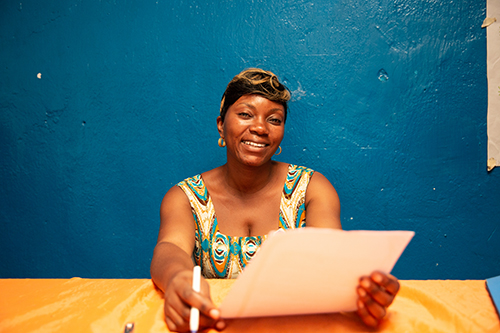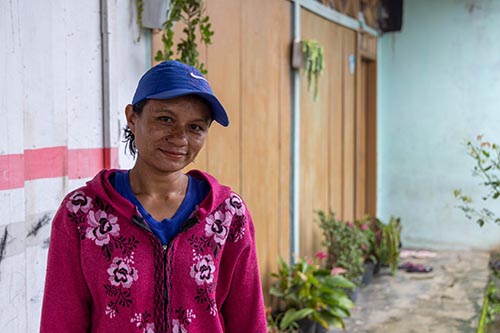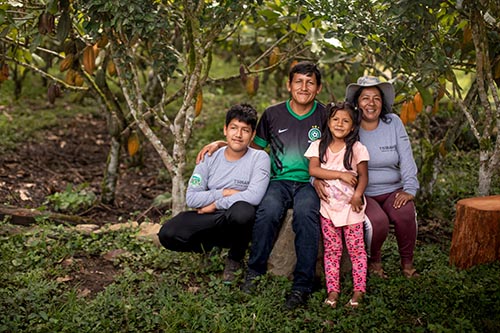We believe equity is not just a goal — it's a necessity. And because of you, it's becoming a reality.
Your love is empowering women from around the globe to champion inclusive sustainable livelihoods, health care access and local capacity strengthening in their communities.
Together, we are building a future where every woman and girl has the opportunity to thrive. Meet our changemakers.
Meet Rosette

Changemaker Rosette is a doctor and project facilitator in the Democratic Republic of Congo (DRC) who is breaking barriers and preventing violence against women and girls in her community. As part of the Tushinde Ujeuri project, Rosette supports survivors of violence with trauma counseling and therapy while ensuring women can access free medical, psychological, and legal care. As a facilitator, she also trains and empowers others in her community to recognize opportunities for women’s advancement.
"Women are underestimated in our community," Rosette said. "Women didn't know they could have their own role. They thought only men should make decisions. But since the training, a woman now knows that she also contributes to her community and her home. She must have a voice."
With your support, and dedicated women like Rosette, we are establishing community-based networks to prevent and respond to violence against women and girls with the goal of combatting stigma, reducing violence and improving care for survivors.
Learn more about our approach to women’s empowerment in Sub-Saharan Africa.
Meet Libranita

Changemaker Libranita is a charismatic leader in the Cinta Rakyat community of North Sumatra, Indonesia. She is a vital member of the Multisectoral Collaboration for Inclusive Health & Opportunities for Women (MECIHO) project, made possible by your kindness and funding from The Starbucks Foundation.
Before Libranita's community participated in the MECIHO project, there was a lack of understanding about sanitation and hygiene. After waste management training, she encouraged her community to establish a garbage bank, a place where waste with economic value can be collected, recycled and sold for additional income. These women-led garbage banks are bringing awareness to good waste management while strengthening women's leadership.
"When I am involved in the garbage bank, I feel happy and proud," Libranita said. "We are also protecting our environment and serve as an example for others."
Learn more about our approach to women’s empowerment in Asia.
Meet Daria

Changemaker Daria is a key member of the women-led Qori Warmi cocoa cooperative in Peru. While improving household income and championing women's inclusion, Daria and her husband are also passing on their passion for cocoa to their kids.
Where the Andes mountains meet the Amazon rainforest is one of Perus’s poorest regions, an area called the VRAEM — and the epicenter for coca leaf production for illegal cocaine. Your generosity is strengthening the resilience of the Qori Warmi cooperative and advancing cocoa as an alternative crop in the region. The women of the cooperative have been able to increase their household income and improve their families' lives by growing organic cacao and making award-winning chocolate.
"Before Qori Warmi, we did not ferment cacao correctly," said Daria. "The middlemen would come, look at our cacao and say the quality was not good, and they would have control over setting the price." Now, "they pay us that price that we demand."
Daria and her husband pass on what they have learned to their 13-year-old son Rodrigo, who has learned many aspects of cacao production and plans to continue the family farm when he is grown. "He also wants to stay here," said Daria. "Not like other students who are going to look for jobs in other areas. He says, 'I'm going to process chocolates. I'm going to work here. There is going to be income.'"
Learn more about our approach to women’s empowerment in Latin America.


